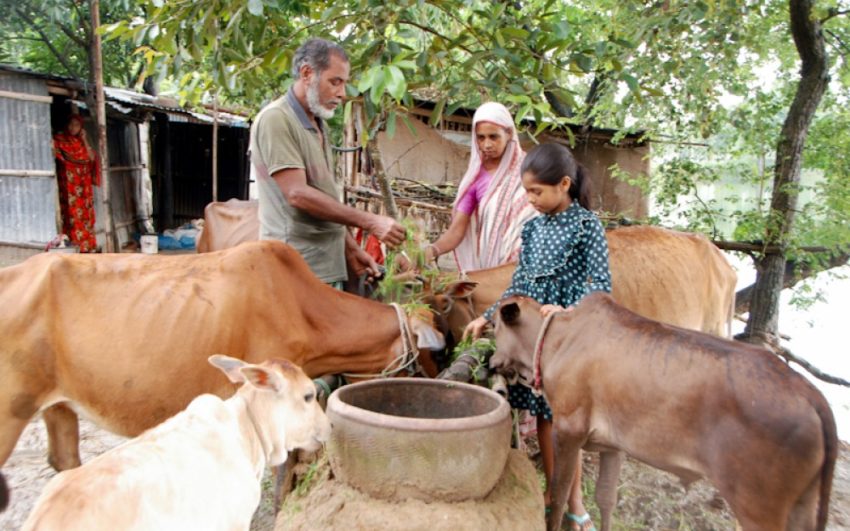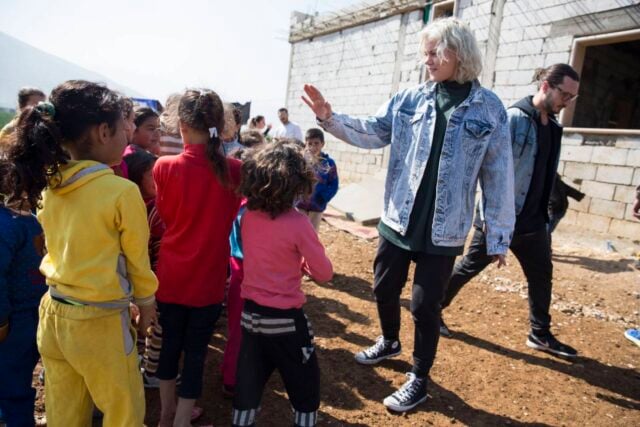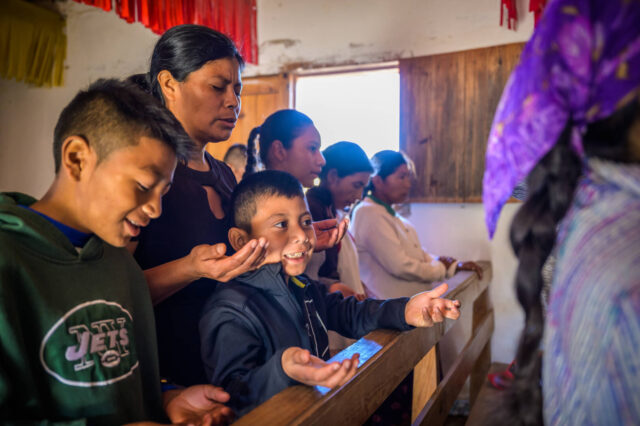Years ago, Brian Fikkert — who co-authored the book When Helping Hurts — went to Uganda to serve a church community, but he suspects he may have hurt them more than he helped. “The image that stays in my mind is the face of the pastor,” Brian says. “Here’s this guy who’s pastoring this church, day-in, day-out, in the slum. I was getting all the attention.
“I just don’t know that I left behind a pastor who felt honored and that his congregation was more behind him than before I showed up.”
The experience left him seeking new ways to more humbly partner with churches and communities around the world so they could help themselves out of poverty.
Dr. Brian Fikkert is an economics professor and the founder and president of the Chalmers Center for Economic Development at Covenant College in northwest Georgia. Here are his thoughts on how the average person or church community can help people living in poverty without negative long-term consequences.
What is the key to understanding poverty?
The key is to diagnose, “What is a human being, what are the effects of the fall on that human being, and what is Christ’s good news for the whole human being?” Most of us in the West have reduced human beings, in essence, to candy machines, in which we pump quarters in and we expect something sweet to pop out.
Human beings aren’t like that. The church has done this; the average American has done it. The discipline of economics has done it in a profound way. The entire paradigm of Western economics is to treat human beings like rational, consuming, material agents that we can describe in mathematical terms. And the reality is, they’re relational.
“What is a human being, what are the effects of the fall on that human being, and what is Christ’s good news for the whole human being?”—Brian Fikkert, co-author, When Helping Hurts
How then should this guide Christians in their approach to helping the poor?
If we see that poverty is rooted in broken relationships that people have with God, self, others, and the rest of creation, and if those relationships are broken because of individual sin and systemic injustice, then we need some really big, good news.
And the good news of Colossians 1 is that Jesus Christ is the Creator, Sustainer, and Reconciler of all things. He’s not distant. His hand holds the entire universe in place. His hand is not just holding it there; his hand is changing the whole thing. He’s reconciling it.
So he is the One who will restore human beings to being in right relationship with God, self, others, and the rest of creation. And it’s really comprehensive good news — better news than I think most of us were raised on in the church.
Why must we view poverty first as the result of broken relationships?
One is: those foundational relationships create systems. The way that we love — God, self, others, and the rest of creation — expresses itself in the systems that we create.
For example, the county that I live in, we’ve basically decided that African-Americans aren’t fully human. We express that through a school system that is profoundly broken, in which anybody with any money at all puts their kids into private schools. And we say to [predominantly poor] African-American children, “We don’t care about you.”
The second is: the systems we create also influence those relationships. We can’t experience those relationships in the way that God intended if the systems aren’t working properly. The relationships affect the systems; the systems affect the relationships.
Why do you think North Americans have become complacent about poverty?
Some of it is just selfishness, quite frankly. We’ve defined life to be about us. If our life is going well, our kids are in good schools, and our kids are doing well at soccer and thriving in school, that’s enough.
Some of it has to do with what I call truncated gospel — a gospel that doesn’t understand the fullness of a “Colossians 1 Jesus” — a gospel that says Jesus is about beaming our souls up out of here. So it’s selfishness and bad theology combined.
How, then, can the average Christian do more to address poverty’s root causes?
One level certainly is providing financial support to organizations that are trying to address poverty at a deep level. But we’ve got to love the person living next door to us, or love the person living down the street from us, and walk with them across time. That’s the hardest thing because we don’t have time. Getting ourselves to try to invest our time in the people around us is just a huge part of it.
Clearly, there’s much work to be done. So what gives you hope?
We are seeing a resurgence of churches in the United States embracing a whole gospel in a way that I don’t think was present even 15 years ago. I’m seeing people say, “It’s about the whole thing. Christ cares about the whole thing. He calls us to care about the whole thing.” The conversation has shifted from, “Should we help,” more toward, “We know we’re supposed to help; now, how do we do it more effectively?” That’s good news.
Learn more about Brian Fikkert’s work and When Helping Hurts at www.chalmers.org.


